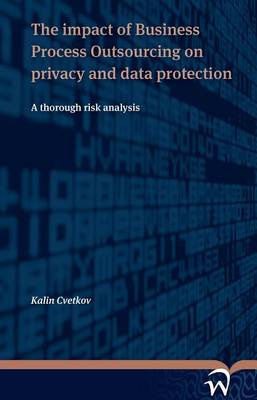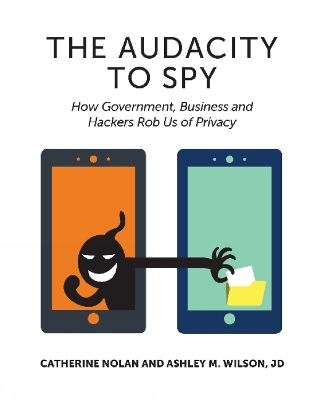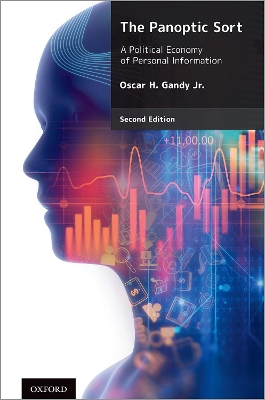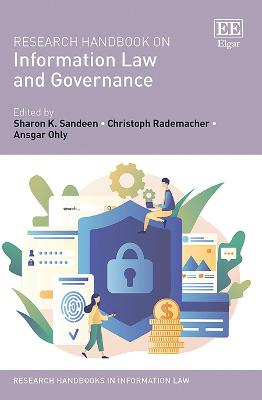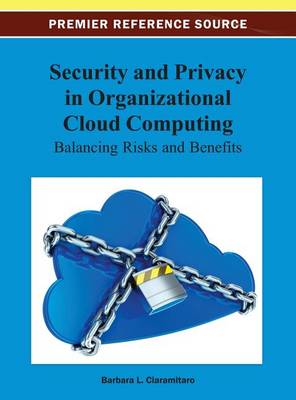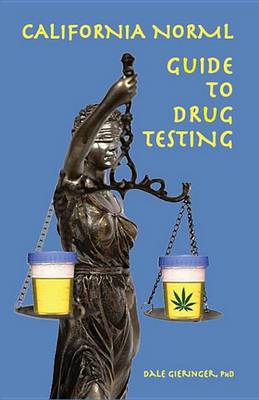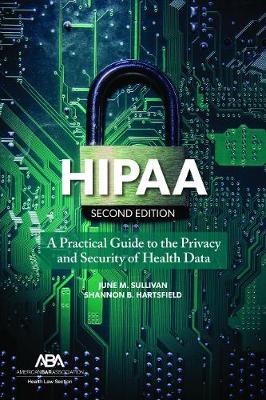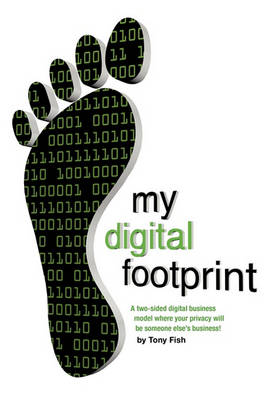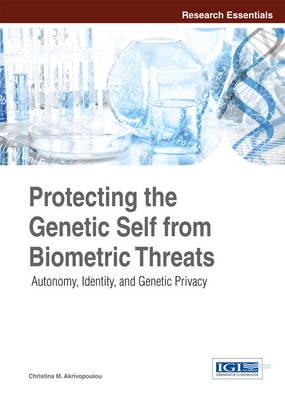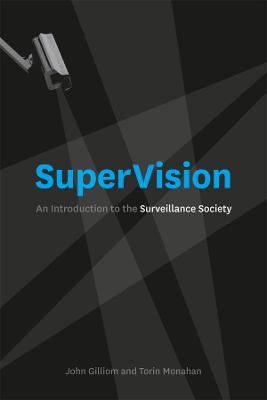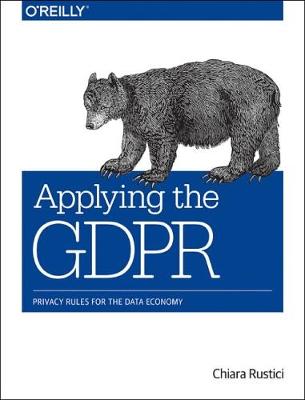The NSA Report
by Richard A Clarke, Michael J. Morell, Geoffrey R. Stone, Cass R Sunstein, and Peter Swire
"We cannot discount the risk, in light of the lessons of our own history, that at some point in the future, high-level government officials will decide that this massive database of extraordinarily sensitive private information is there for the plucking. Americans must never make the mistake of wholly 'trusting' our public officials."--The NSA Report This is the official report that is helping shape the international debate about the unprecedented surveillance activities of the National Security...
The Panoptic Sort was published in 1993. Its focus was on privacy and surveillance. But unlike the majority of publications addressing these topics in the United States at the time that were focused on the privacy concerns of individuals, especially those related to threats associated with government surveillance, that book sought to direct public toward the activities of commercial firms. It was highly critical of the failure of scholars and political activists to pay sufficient attention to th...
Research Handbook on Information Law and Governance
by Sharon K. Sandeen, Christoph Rademacher, and Ansgar Ohly
This fresh and insightful Research Handbook delivers global perspectives on information law and governance, delving into principles of information law in the areas of trade secrecy, privacy, data protection and cybersecurity. Providing US, Japanese and European perspectives, this Research Handbook presents an overview of legal regimes concerning the protection of information, with a particular focus on trade secrecy protection. Top international contributors offer analyses of general principles...
Security and Privacy in Organizational Cloud Computing
Cloud computing is a dramatically expanding area, becoming more and more commonly used by companies and businesses. However, before any major shifts to utilising cloud computing, it is important to analyse the potential risks involved in storing secure data in the cloud. Security and Privacy in Organizational Cloud Computing: Balancing Risks and Benefits not only discusses the benefits of cloud computing, but it also fairly investigates the possible security risks. Banks, hospitals, schools,...
Danielle Keats Citron takes the conversation about technology and privacy out of the boardrooms and op-eds to reach readers where we are-in bathrooms and bedrooms, with our families and our lovers, in the parts of our lives we assume are untouchable-and shows us that privacy, as we think we know it, is largely already gone. From nonconsensual pornography to online extortion, to the sale of our data for profit, we are vulnerable to abuse. As Citron reveals, wherever we live, laws have failed mise...
Can the government stick us with privacy we don't want? It can, it does, and according to this author, may need to do more of it. Privacy is a foundational good, she argues, a necessary tool in the liberty-lover's kit for a successful life. A nation committed to personal freedom must be prepared to mandate inalienable, liberty-promoting privacies for its people, whether they eagerly embrace them or not. The eight chapters of this book are reflections on public regulation of privacy at home; isol...
Privacy: A Very Short Introduction (Very Short Introductions)
by Raymond Wacks
Professor Raymond Wacks is a leading international expert on privacy. For more than three decades he has published numerous books and articles on this controversial subject. Privacy is a fundamental value that is under attack from several quarters. Electronic surveillance, biometrics, CCTV, ID cards, RFID codes, online security, the monitoring of employees, the uses and misuses of DNA, - to name but a few - all raise fundamental questions about our right to privacy. This Very Short Introduction...
Theory and Practice of the European Convention on Human Rights, 5th edition (hardcover)
Since the first edition of Theory and Practice of the European Convention on Human Rights forty years ago, this book has become the leading reference in the field of human rights in Europe. It provides a systematic and comprehensive overview of the functioning of the European Convention for the Protection of Human Rights and Fundamental Freedoms and its application by the European Court of Human Rights.With Protocol No. 14 entering into force on 1 June 2010, the protection of human rights in Eur...
Matters of privacy have profoundly changed since electronic storage of information has become the norm. Consequently, policy-makers and legislators are trying to keep up with privacy challenges in the workplace, in healthcare, in surveillance, and on social networking sites. With Privacy: Defending an Illusion, Martin Dowding fills a very important gap in policy analysis and the teaching of privacy issues at the senior undergraduate and early graduate student level. In the first section of this...
Police Visibility presents empirically grounded research into how police officers experience and manage the information politics of surveillance and visibility generated by the introduction of body cameras into their daily routines and the increasingly common experience of being recorded by civilian bystanders. Newell elucidates how these activities intersect with privacy, free speech, and access to information law and argues that rather than being emancipatory systems of police oversight, body-...
Protecting the Genetic Self from Biometric Threats: Autonomy, Identity, and Genetic Privacy
Secrecy and Privacy in the Modern World, 1800-2000 (Themes in History)
by David Vincent
We live in a surveillance society. Anyone who uses a credit card, cell phone, or even search engines to navigate the Web is being monitored and assessed - and often in ways that are imperceptible to us. The first general introduction to the growing field of surveillance studies, "SuperVision" uses examples drawn from everyday technologies to show how surveillance is used, who is using it, and how it affects our world. Beginning with a look at the activities and technologies that connect most peo...
What information about you is available on the Internet? What if it’s wrong, humiliating, or true but regrettable? Will it ever go away? Teeming with chatrooms, online discussion groups, and blogs, the Internet offers previously unimagined opportunities for personal expression and communication. But there’s a dark side to the story. A trail of information fragments about us is forever preserved on the Internet, instantly available in a Google search. A permanent chronicle of our private lives—of...
The most dangerous threat we--individually and as a society and country--face today is no longer military, but rather the increasingly pervasive exposure of our personal information; nothing undermines our freedom more than losing control of information about ourselves. And yet, as daily events underscore, we are ever more vulnerable to cyber-attack. In this bracing book, Michael Chertoff makes clear that our laws and policies surrounding the protection of personal information, written for an e...
Has your organization begun efforts to comply with the General Data Protection Regulation (GDPR) adopted by the European Union? Some companies would rather litigate than comply, even though personal data malpractice will draw hefty fines from the EU starting in 2018. This concise book provides IT executives with a compelling argument for GDPR compliance-before it's too late. Author Chiara Rustici-former jurisprudence and international law tutor who's independently researched GDPR-delivers the kn...
